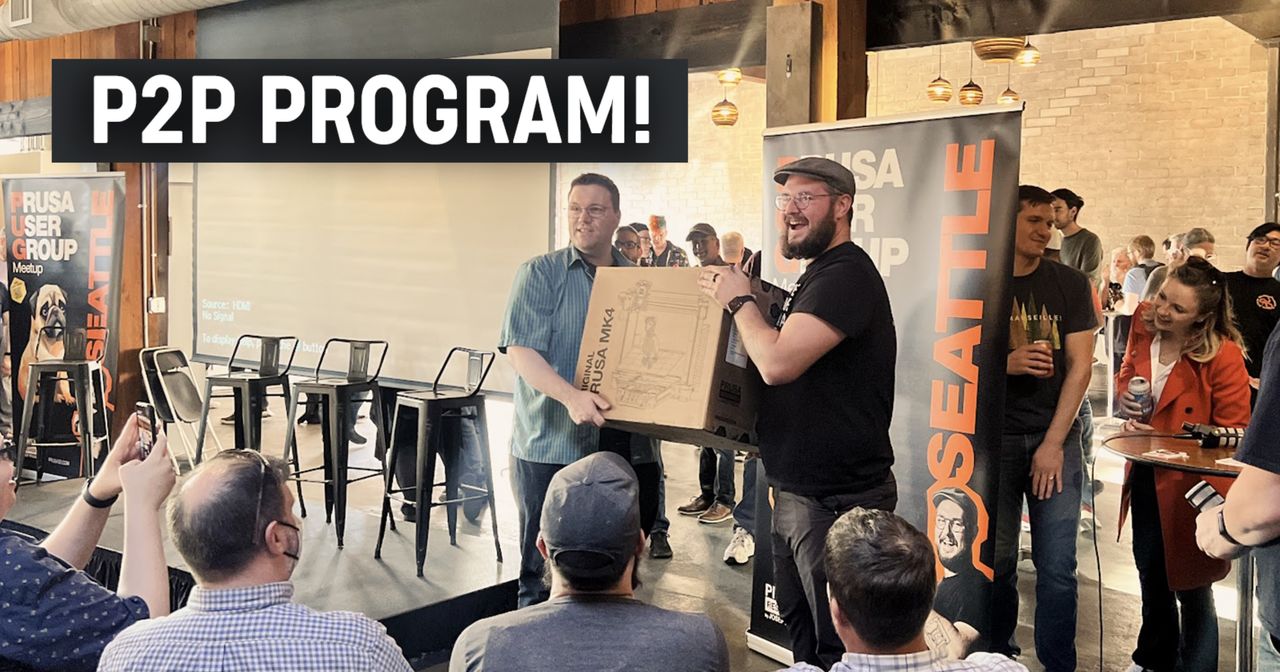
There seems to be a new area of competition between Bambu Lab and Prusa Research: reward programs.
Prusa Research was the dominate player in the desktop 3D printer space for several years, until the abrupt introduction of Bambu Lab’s equipment two years ago. While Prusa Research kept relying on their aging MK3 model, Bambu Lab entered the market with a machine offering vastly higher print speeds and other features, at competitive price points.
The result was a bit of a split in the market. Nowadays we see large quantities of machines being sold by both companies, and they’ve been competing strongly against each other.
Prusa Research rapidly released a machine with similar capabilities, the MK4, but by that time Bambu Lab had gained a strong following. The two companies have continued to compete.
A new area of competition between the two seems to be emerging: reward programs.
Prusa Research was first on the playing field with their unique “Prusameters” program. A “Prusameter” is a credit system, where credits appear when the user performs a variety of actions on Prusa services. For example, 10 Prusameters are awarded if you upload a 3D model to their Printables online repository. More Prusameters are allocated as others download your 3D model.
These credits can then be accumulated and eventually exchanged for a variety of products, including filament, resin, T-shirts, gift cards, and even entire 3D printers if a sufficient number of Prusameters are collected. It’s even possible to donate Prusameters to educational institutions.
It’s been quite a successful program over the years, is well thought out and quite comprehensive.
After Bambu Lab launched they developed services that echo much of what Prusa Research has done. For example, where Prusa operates Printables for storing online 3D models, Bambu Lab has MakerWorld.
Bambu Lab introduced a rewards program as well, where participants can earn “points” for similar activities. These can be redeemed within the MakerWorld store for a variety of items, such as 3D printing kits, gift cards, and more.
This program has also been very popular, and there are plenty of designers uploading 3D models to MakerWorld to gain points when people download them.
Both programs have been successful and have driven more customers towards their products and ecosystems.
This week Prusa Research announced new features in their rewards program. Specifically, they have a “Prusa to Prusa Community Reward Program”, which they abbreviate as “P2P”.
P2P is focused on sales of 3D printers. The idea is that existing product owners can receive a special referral code. This can be shared, and when someone purchases, say, a new Prusa MK4 3D printer via the link, the link owner receives 350 Prusameters, which they say is “enough for a free spool of filament”.
There are different levels of rewards depending on the specific Prusa model purchased, but more are rewarded for higher priced devices. The maximum amount is 700 Prusameters, awarded for a purchase of the larger XL machine.
Prusa Research has thought carefully about this referral program, and has implemented some constraints to make sure it is not abused. For example, Prusameters awarded are “pending” for 60 days to handle cases where the 3D printer order might be cancelled before delivery.
Referral programs like this have been successfully implemented in other industries. A notable example was Tesla, which for several years while they were scaling up awarded entire vehicles to those with many referrals. It seems that Prusa Research wants to achieve similar success.
The P2P program will definitely increase sales for the company, but I’m wondering when and how Bambu Lab will react. Will they launch a similar referral program for purchasing their equipment?
Via Prusa Research
